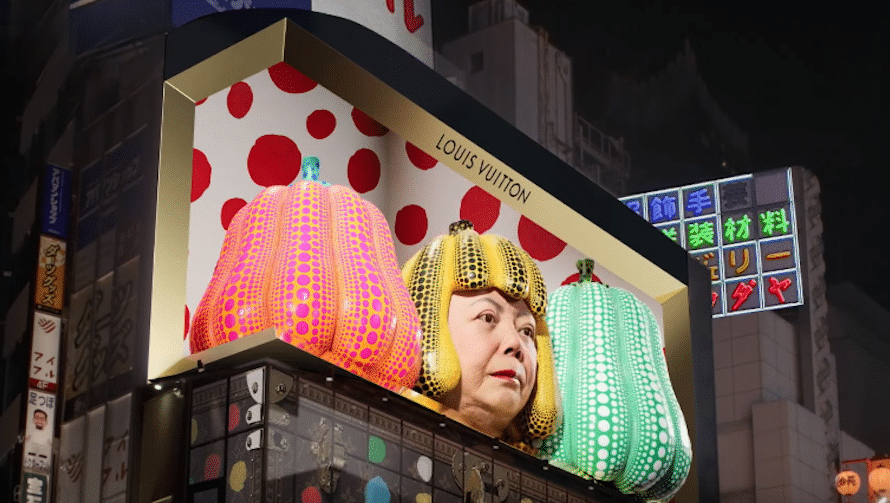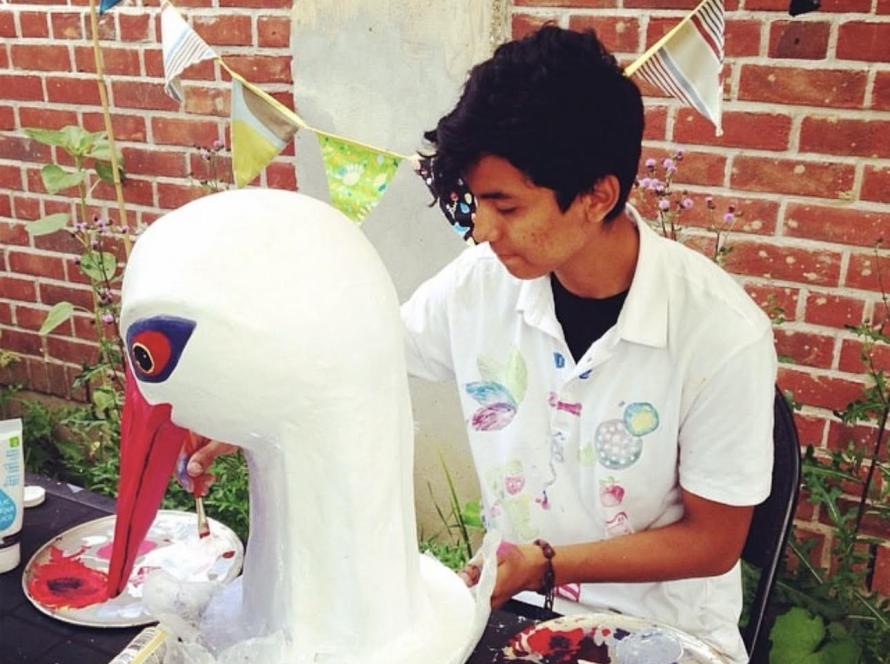The core purpose of art education for kids is to foster creativity, self-expression, and critical thinking while helping them develop fine motor skills and an appreciation for diverse perspectives. Through art, children explore their imaginations, experiment with materials, and gain confidence in their ability to communicate ideas visually. Art education also nurtures emotional resilience, as it allows kids to explore and express their feelings in a safe and constructive way. Moreover, engaging with art helps children build problem-solving skills, encourages them to think creatively, and instills an understanding of cultural diversity and empathy, all of which are essential for holistic development.
Open-ended, process-based art lessons support the core goals of art education by emphasizing exploration, experimentation, and individual expression over the final product. In these lessons, children are encouraged to make their own creative choices, which helps them build confidence and develop a sense of autonomy. This approach allows kids to engage with materials in a hands-on way, experimenting with techniques and discovering how things work, which enhances critical thinking and problem-solving skills. Because there are no right or wrong outcomes, children feel free to take risks, make mistakes, and learn from them, fostering emotional resilience and a growth mindset. Additionally, process-based art encourages kids to appreciate their unique creative journey, which promotes self-expression and helps them connect to their inner thoughts and emotions. This focus on exploration and personal expression naturally cultivates a deeper understanding of art and a respect for diverse perspectives, supporting holistic development.
Product-focused art, which emphasizes a specific end result or outcome, can conflict with the core principles of art education by limiting creativity, self-expression, and exploration. When art projects have a predetermined final product, children are often required to follow specific instructions and replicate an example, which can stifle their imagination and discourage them from making independent choices. This approach may lead to frustration if they feel their work doesn’t match the expected outcome, potentially diminishing their confidence and willingness to take creative risks. Product art also tends to prioritize the appearance of the final piece over the learning process, which can overshadow the value of experimentation, problem-solving, and personal expression. By focusing on a “right” way to create, product art may inadvertently teach children to seek external validation instead of fostering intrinsic motivation and a love for the creative process.
Example
Here’s an example of an open-ended, process-based approach: The kids received a demo on basic sculpture techniques using specific materials like water bottles, plaster, small wood pieces, and cardboard. Our discussion theme was Canadian winter animals. Each child chose an animal to create and sketched their ideas. Then, they selected materials and applied the sculpture techniques they’d learned. There was no predetermined outcome, so even when multiple kids chose the same animal, such as a penguin, each sculpture turned out uniquely their own.
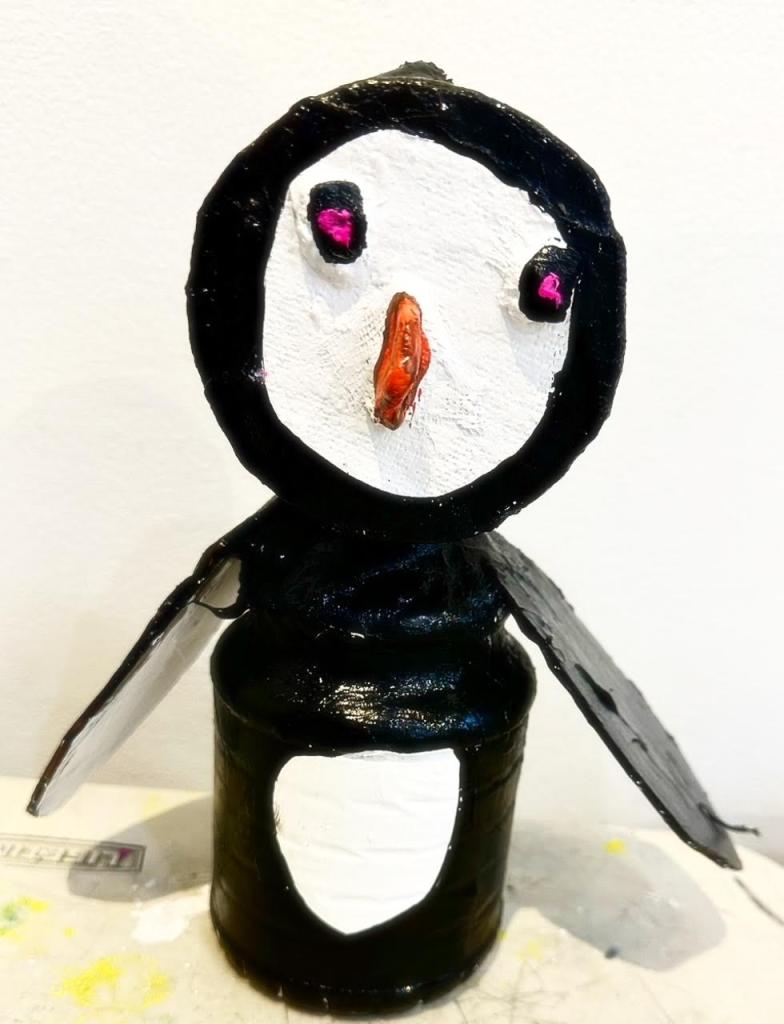
Lucy the Little Penguin, 2024
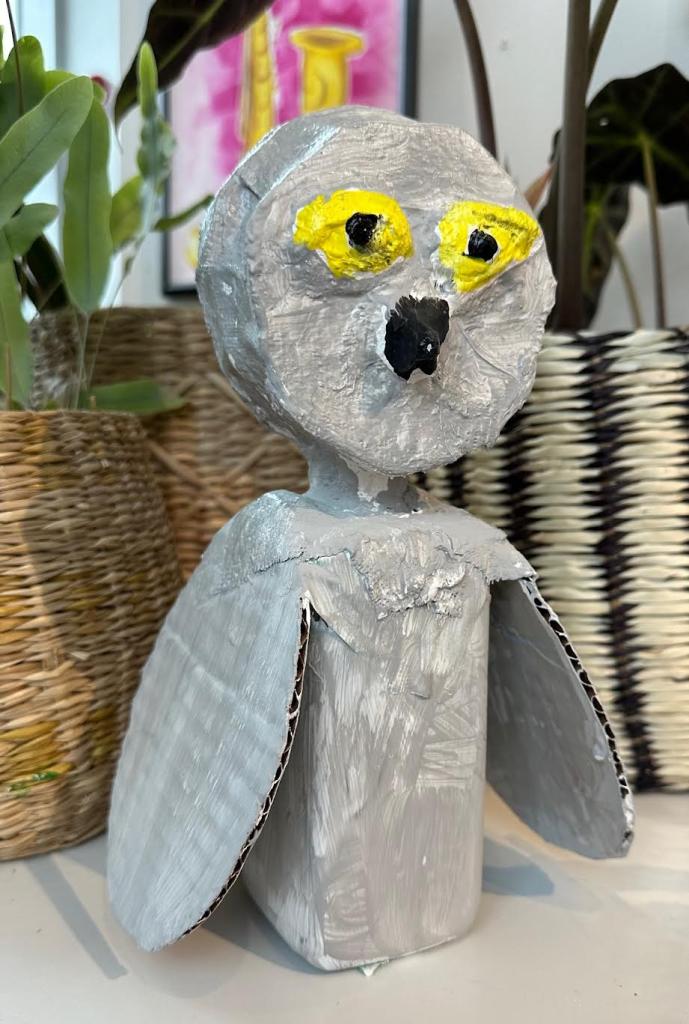
Grey Owl Watching Clouds, 2024 #wychwoodbarns
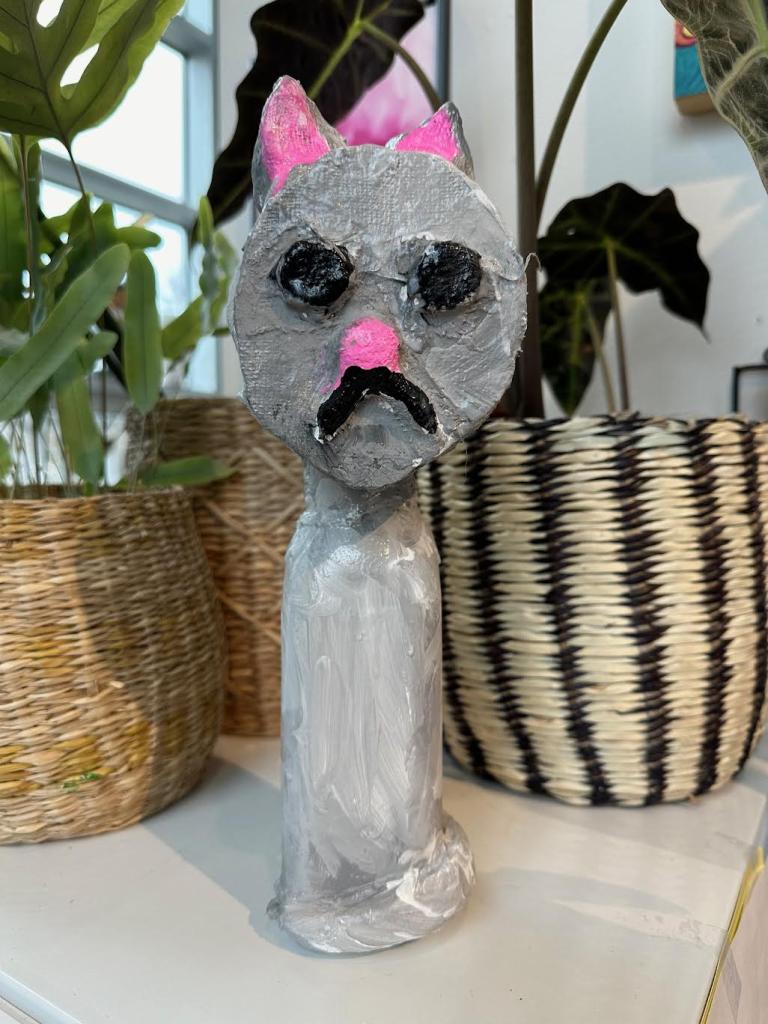
Grey Fox Hunting, 2024 #wychwoodbarns

Arctic Fox, 2024 #wychwoodbarns
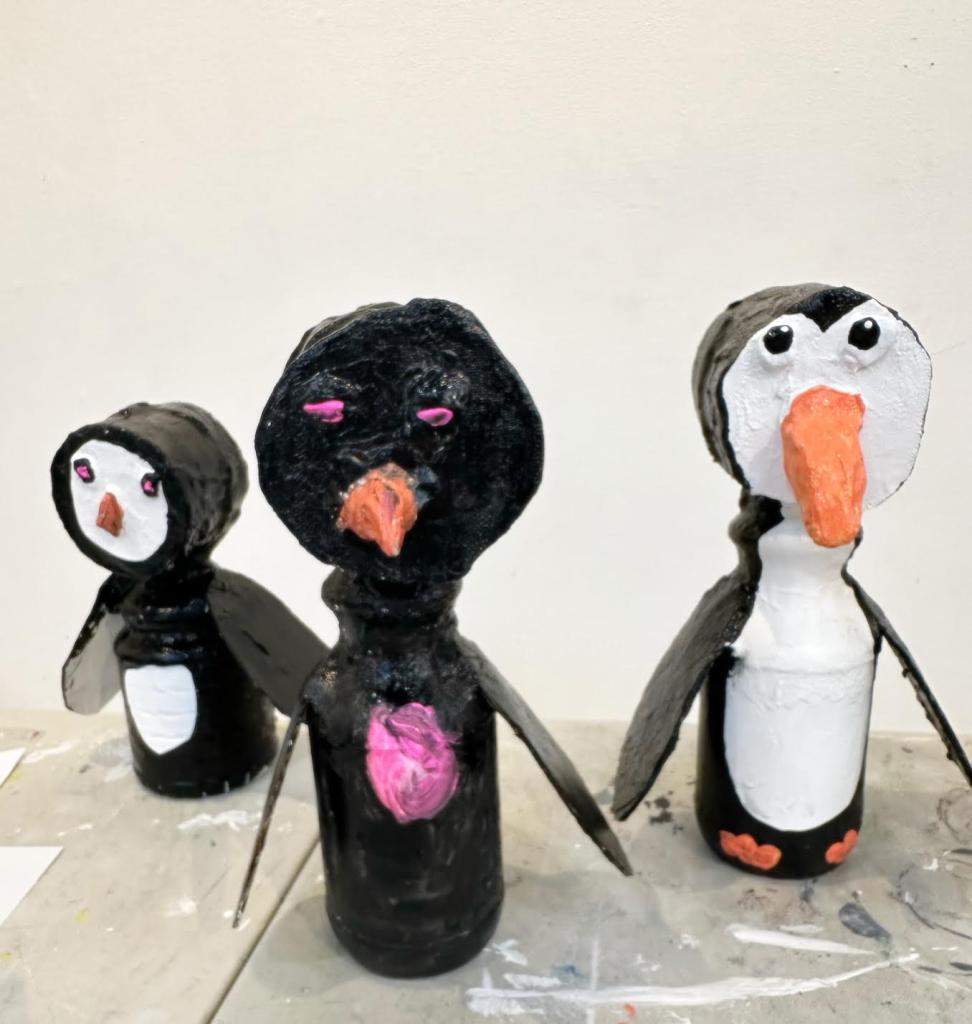
Arctic Pals, 2024 #wychwoodbarns
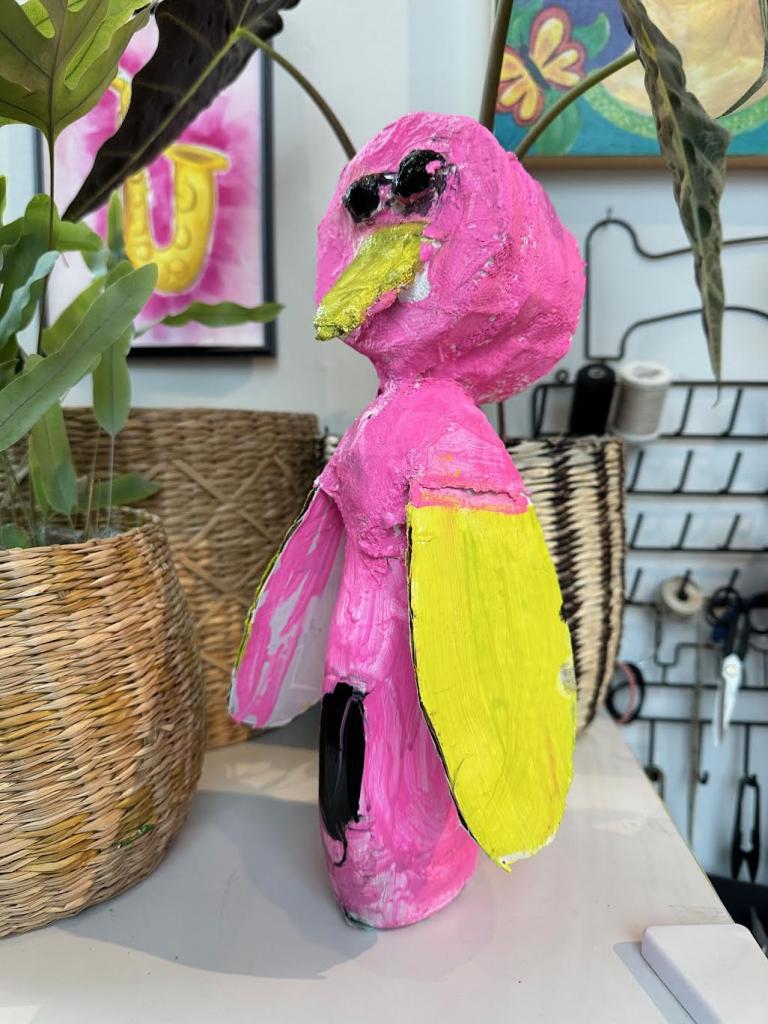
Pink Penguin, 2024 #wychwoodbarns
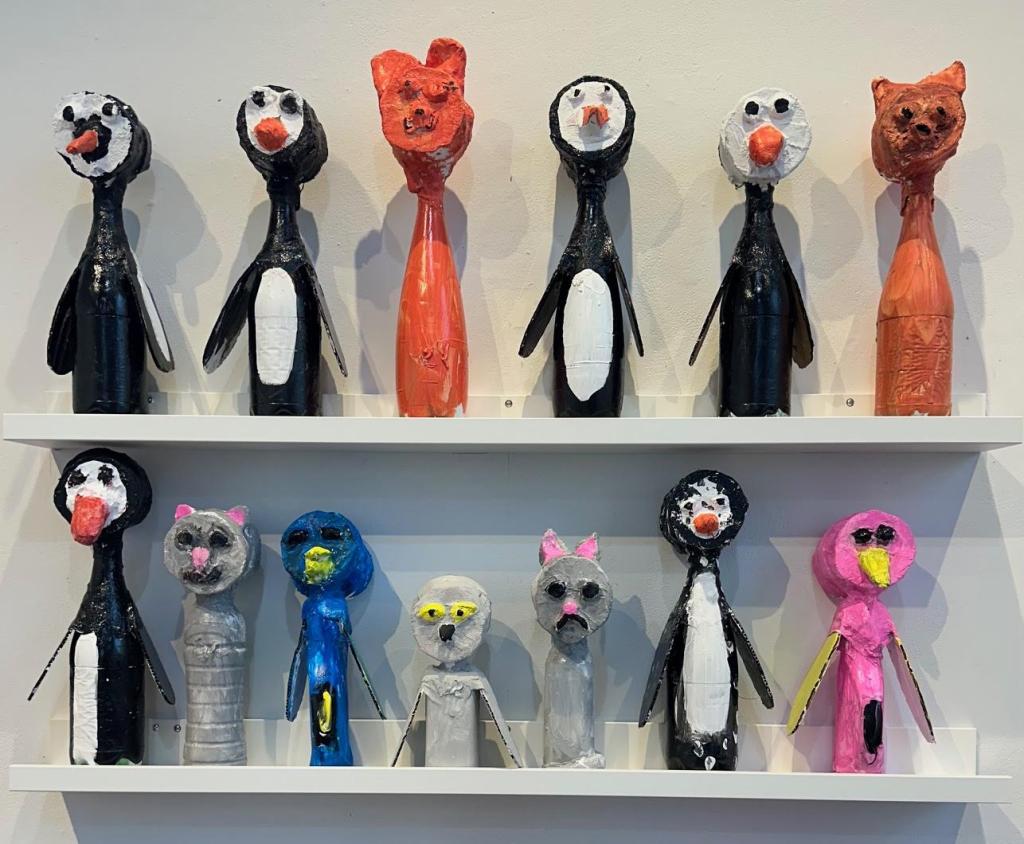
Arctic Pals, 2024 #wychwoodbarns
#artclassestoronto #artclasseswychwoodbarns


